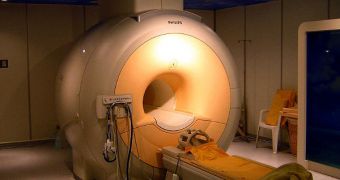Two research groups, one based in France, and the other one in the United Kingdom, are currently working on new ways of integrating Nuclear Magnetic Resonance (NMR) spectrometers in the operating room. They say that this could halve, or even quarter, the time it takes for biopsy samples to be analyzed, a feat that could give surgeons real-time feedback on their procedures, and could also significantly boost the patients' chances of success.
With NMR spectroscopy, scientists can detect what is commonly referred to as the “chemical fingerprint” of biopsy samples. The technique can reveal if the cells inside a collected sample are healthy, and is also capable of relaying that information back into the operating room very fast. At this point, a trained histopathologist needs about 40 minutes to collect a biopsy, stain it, put it under a microscope, and then determine if the cells are healthy or not. The new system could do the same 200 to 400 percent faster, the teams believe.
“We do a lot of intestinal surgery. I could take a tissue sample of the two ends of the bowel that I'm going to stitch together, [and NMR spectroscopy] could immediately tell me that this area of the bowel is underperfused and is not going to heal,” Ara Darzi, a surgeon at the St Mary's Hospital, in the UK capital, explains. His unit will be the first to receive a new NMR spectrometer, especially designed by experts at the Imperial College London. The ICL team that devised the new, $490,000 machine was led by the head of the department of surgery and cancer, Jeremy Nicholson, Nature News reports.
“We're confident we've been able to find decent biomarkers for kidney and colon biopsies. What we'd like to do now is perform some real-time analysis during a surgical operation,” expert Martial Piotto says. He is a scientist at the Wissembourg, France-based scientific instrument maker Bruker BioSpin, and also the head of the NMR application laboratory at the company. The French company was the manufacturer of the Hautepierre NMR machine, which is currently used by a French team in Strasbourg to conduct research similar to the one going on in the UK.
“This is huge for NMR. A lot of the literature has pointed to the fact that NMR might be a very good direct medical tool but nobody has really been able to test it directly in the frame of a surgical suite like this. This really opens the door of opportunity,” University of California in San Francisco (UCSF) Director of the Prostate Cancer Imaging Program John Kurhanewicz explains.

 14 DAY TRIAL //
14 DAY TRIAL //